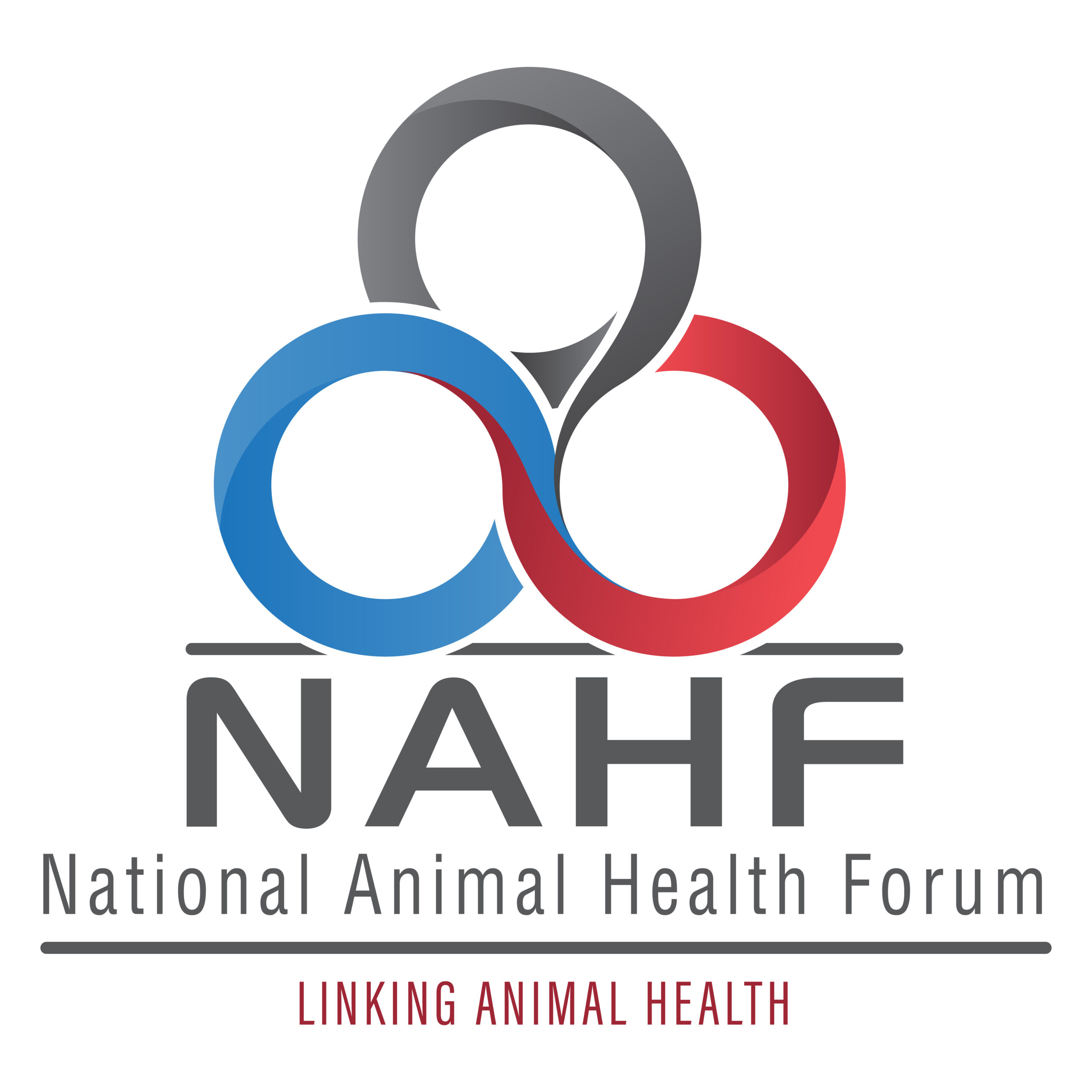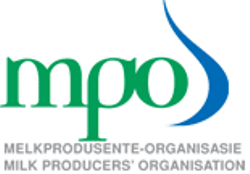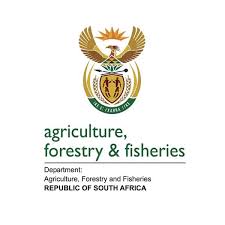
Report compiled by:
Directorate: Animal Health
- 1. Introduction and summary
In November 2019, an outbreak of foot-and-mouth disease (FMD) was confirmed on a farm in the Capricorn district of Limpopo, which is in the suspended FMD free zone. Disease investigations are currently ongoing and the infection has been confirmed in ten locations. The affected properties include commercial cattle farms, a community farm, feedlots, and associated abattoirs. All the positive locations are in Limpopo. No positive locations have been found in any other province.
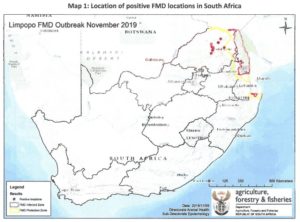
- 2. Affected locations
On 1 November 2019, an outbreak of FMD was first reported at a commercial farm in Molemole Local Municipality in the Capricorn District of Limpopo. The infection was confirmed by polymerase chain reaction (PCR) at Transboundary Animal Disease – Onderstepoort Veterinary Research of the Agricultural Research Council.
To date, the infection has been confirmed on nine commercial properties that include commercial farms, feedlots, and associated abattoirs, as well as one community farm. Some locations were identified as a result of reports of clinical signs seen in cattle, while most were identified during trace back and trace forward exercises. All of the locations are either linked directly to auction sales or to movement from affected farms. Varied clinical signs are seen, with some locations showing almost no clinical signs, some showing only foot lesions, while other show pronounced mouth lesions.
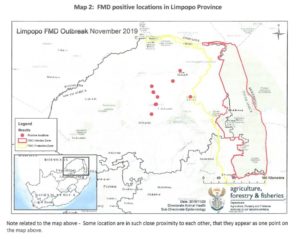
- 3. Control measures implemented
All the infected properties have been replaced under quarantine and cloven-hoofed animals are not allowed to move off the quarantined properties. Strict biosecurity measures are also in place at all quarantined properties to avoid the spread of disease through indirect contact.
Clinical examination of all cloven-hoofed animals on all affected properties is being conducted to determine the prevalence of the disease. The application of emergency vaccination to the in-contact cattle is not considered necessary at this stage.
The congregation and redistribution of cloven-hoofed animals from and to more than one location (i.e. auctions, shows, and similar activities) have been identified as playing an integral role in the spread of disease. Livestock owners have been advised to temporarily suspend all such activities in all provinces until the extent of the outbreak has been confirmed. Farmers are encouraged to only move cloven-hoofed animals directly from one property to another with the support of a veterinary declaration to confirm the absence of clinical signs of FMD on the premises of origin and in the animals to be moved.
- 4. Epidemiological investigation
The virus responsible for the outbreak is a SAT 2 serotype and is closely related to the virus responsible for the outbreak that occurred in January 2019, as well as the outbreaks in the FMD protections zone in May and August 2018.
The exact source of this outbreak is yet to be determined and is still being investigated. However, illegal movement of cloven-hoofed animals out of the FMD controlled areas could have introduced the virus into the FMD-free areas, where-after spreading of the disease occurred through normal (legal) movements of cloven hoofed animals.
Epidemiological investigation is continuing, with backward and forward tracing in process to determine possible origin of the virus, with subsequent movements between farms contributing to further spread. Movements of cattle that occurred in the past three months on the infected properties as well as others linked to the sources or destinations of the translocated animals are being investigated. Passive surveillance in the rest of the country is being strengthened by emphasizing the importance of reporting suspect cases.
- 5. Trade implications
Following the loss of the OIE recognised FMD-free status in January 2019, agreements were negotiated with trade partners on the export of safe commodities, including heat-treated meat and dairy products, deboned and mature beef, scoured wool, salted hides and skins, and livestock embryos. Most trade partners have thus far retained the negotiated agreements for these safe commodities, based on the guarantees provided for the processing to ensure inactivation of the virus. South Africa is also confident to certify for the safety of pork products from known FMD-free pig compartments.
Dr Mpho Maja
Director Animal Health
27 November 2019
source: FMD _ Molemole outbreak follow – up report 27 11 2019
Published on Wednesday, 27th November 2019 - 12:09
Recent Posts
disclaimer








